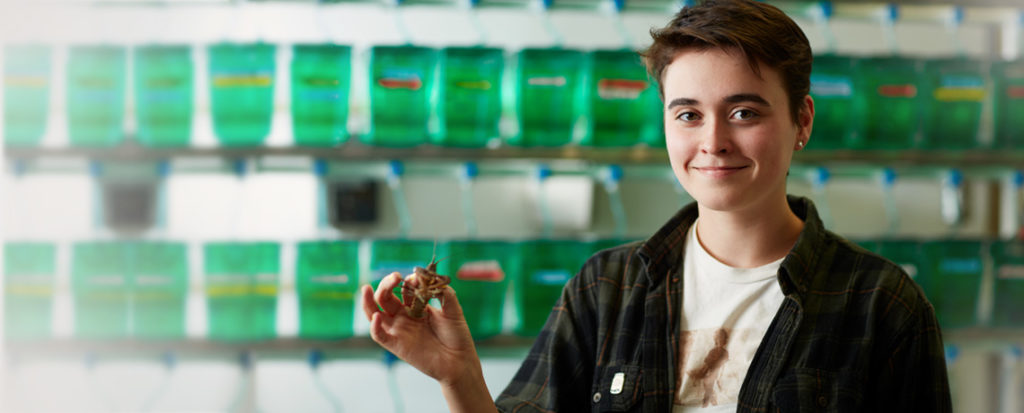Weather patterns. Climate change. Cell death. These are among more than a dozen STEM-based topics tackled by University of Mary Washington students during this year’s Summer Science Institute, an intensive, fully funded 10-week research opportunity.
Working with professors in their field of study, 20 undergraduates took the reins on projects that prepare them for careers and grad schools and have the potential to shape their lives – and the world.
They’ve used budding yeast as a model for identifying novel genes involved in DNA repair (think cancer research) and studied the effects of a common pesticide on crayfish. One student examined whether a person’s political ideology can be gleaned from what they post on social media.
Student scientists presented their research on Wednesday, July 25 in the HCC Digital Auditorium. An awards ceremony followed.

This summer, 10 faculty members mentored 20 students through SSI, which includes workshops, team-building activities and weekly progress meetings, in addition to research.
“Science tends to be time-intensive,” said Associate Biology Professor and SSI co-chair Abbie Tomba. “During the school year, it can take two weeks to do what these students can get done in a day.”
The unique program is designed to give UMW students the time to focus on research while providing room, board and a paycheck. For some, it is their first sampling of real, original research.
“These students often go off and present their research at conferences,” Tomba said.
Weekly meetings also encourage STEM-students to talk to each other across disciplines, which means they get good at explaining what they’re working on. “If you’re doing the coolest thing in the world, but you can’t communicate it, sometimes it gets lost,” Tomba said.
This year’s Summer Science Institute coincided with the ongoing Jepson Science Center project, which includes the construction of a 40,000-square-foot addition slated for completion in the spring and an extensive renovation to the existing building scheduled to be ready by the fall of 2019.
The addition will house the physics department and the earth and environmental science department. The renovation will expand the biological sciences and chemistry departments. New laboratory spaces will support faculty and student research opportunities, which include SSI, said Grant Woodwell, geology professor and associate dean of the College of Arts and Sciences.
The building addition will connect to the existing Jepson Science Center on three levels, which will help to promote interdepartmental research and provide several new spaces for informal student gathering areas and study nooks.